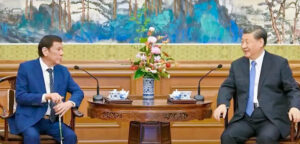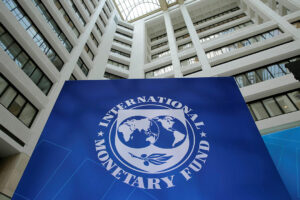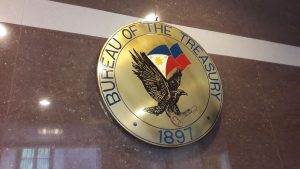Marcos ‘horrified’ by idea of Duterte having compromised PHL sovereignty

By Kyle Aristophere T. Atienza, Reporter
PRESIDENT Ferdinand R. Marcos, Jr. on Wednesday said he is “horrified” by the thought that Philippine sovereignty might have been compromised under a “gentleman’s agreement” between his predecessor and China over Second Thomas Shoal in the South China Sea.
“I am horrified by the idea that we have compromised, through a secret agreement, the territory, the sovereignty and the sovereign rights of Filipinos,” he told reporters on the sidelines of an event in Metro Manila.
Tensions have worsened in the past year as China’s coast guard continues to block resupply missions to Second Thomas Shoal, where the Philippines grounded a World War II-era ship in 1999 to assert its sovereignty.
He said his government needs to clarify with Chinese Ambassador to the Philippines Huang Xilian and former officials under ex-President Rodrigo R. Duterte the details of the deal.
“We don’t know if it’s a secret agreement,” Mr. Marcos said. “We don’t know anything about it. There is no documentation, there is no record. We were not briefed when I came to office.”
Former presidential spokesman Harry L. Roque earlier said the Philippines had agreed with China to keep the status quo at Second Thomas Shoal, which meant only basic supplies, not building materials, would be delivered to the grounded ship BRP Sierra Madre.
The Philippine Foreign Affairs department last month said Beijing had raised the gentleman’s agreement in its proposals to Manila on how to ease tensions in the South China Sea.
“It would be difficult to follow an agreement that says we have to seek permission from other countries to be able to move within our own territory,” Mr. Marcos said.
Former chief presidential legal counsel Salvador Panelo has said his former boss had not entered into a gentleman’s deal with Chinese President Xi Jinping.
Antonio P. Contreras, a political expert from the University of the Philippines Los Baños, said Mr. Marcos is in a good position to dig deeper into the deal, noting that Filipinos support his South China Sea policy, based on opinion polls.
A December poll by Octa Research showed than seven of 10 Filipinos wanted the government to boost patrols and troop presence within the Philippines’ exclusive economic zone in the waterway.
Mr. Contreras expects the sea dispute with China to become a major issue in the midterm elections next year.
It will mainly affect the political ambitions of the ex-President’s daughter, Vice-President Sara Duterte-Carpio, he said, adding that it does not help that she continues to be silent on Chinese aggression. “It’s going to hurt her.”
“There will be an interesting realignment of political forces,” Mr. Contreras said by telephone, noting that some opposition groups support moves to hold the Duterte government responsible to for its pro-China policy.
“The commander-in-chief has all the right to be horrified at this possibility given how the gentleman’s agreement had set false expectations that Manila is easy to give in and lacks sophistication in international relations,” said Joshua Bernard B. Espeña, who teaches international relations at the Polytechnic University of the Philippines.
Chester B. Cabalza, founder of the International Development and Security Cooperation in Manila, said China is expected to use the deal in trying to influence Philippine politics ahead of next year’s elections.
“Possibly, Beijing will insist on this card for political intervention during elections in the Philippines as many politicians are hoping to get a slice of the China funding during the campaign season,” he said in a Facebook Messenger chat.
‘FREEDOM OF NAVIGATION’Mr. Marcos, 66, has veered away from his predecessor’s pro-China policy, boosting Philippine ties with the United States and its allies in the region.
The Philippine leader was set to fly to Washington, D.C. later in the day for his three-way summit with US President Joseph R. Biden and Japanese Prime Minister Fumio Kishida on April 11.
The trilateral summit seeks to secure freedom of navigation in the South China Sea, Mr. Marcos said. “Essentially, it’s an agreement on cooperation in terms of maintaining security and freedom of navigation in the South China Sea. That’s the essence of it.”
“And, of course, it will contain more details in the sense of how, in terms of cooperation, it will be implemented,” he added.
The Philippines has given the US access to four more military bases on top of the five existing sites under their 2014 Enhanced Defense Cooperation Agreement.
The two countries held their first Maritime Cooperative Activity within Philippine waters in November, with the third leg done in February.
The treaty allies are set to hold their annual Balikatan (shoulder-to-shoulder) exercises on April 22 to May 18, with 5,000 Filipino soldiers and 11,000 US military personnel expected to participate.
For the first time, it will be held beyond the Philippines’ 12-nautical-mile territorial waters, according to the Philippine military.
The three leaders are expected to advance a trilateral partnership built on historical ties, growing economic relations, shared democratic values and a “shared vision for a free and open Indo-Pacific,” according to the White House.
They will also discuss how to advance their economic and climate cooperation.
Washington is expected to “reaffirm ironclad alliances” with Manila and Tokyo, which are both treaty allies.
Mr. Marcos and Mr. Biden were expected to have a separate meeting.




